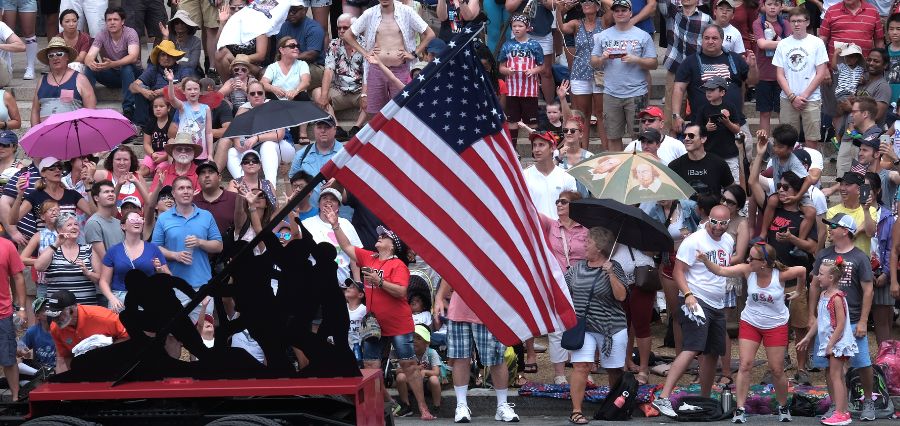Prime Highlights
- Americans are observing Independence Day with a blend of patriotic rituals, political protests, and mass travel.
- Social unrest and immigration tensions have caused event cancellations in some places while activists stage “Free America” rallies.
Key Facts:
- More than 72 million Americans are traveling this Independence Day—the most in 15 years.
- Some Los Angeles-area public events and parades were cancelled because of concerns about immigration raids.
- Nationwide “Free America” movement protests are spotlighting social and political issues such as poverty, immigration, and inequality.
Key Background
The 2025 Independence Day celebration is a telling snapshot of a fractured but busy America. While some citizens enjoy the traditional parades, fireworks, and family barbecues, others are taking the opportunity to protest political and social grievances. Meanwhile, record travel is an indication of a restless population that wants to reconnect and have a party—despite the tensions beneath.
Southern California neighborhoods have experienced a rapid transformation in Fourth of July celebrations. Multiple scheduled events, such as the city’s annual parade in El Sereno, were scrapped following federal immigration raids that created anxiety within immigrant communities. National Guard and Marine patrols have instilled a climate of tension, leading to cancellations in cities such as Bell Gardens and Huntington Park.
In contrast to these cancellations, protest activity is spreading nationwide. Organized by groups like the Women’s March, the “Free America” campaign is mobilizing more than 140 protests nationwide. These range from symbolic acts such as protests at naturalization ceremonies, public potlucks, and major marches outside high-profile sites like Mar-a-Lago and Houston City Hall. Organizers mention growing poverty rates, reductions to Medicaid, and heightened deportation activity as reasons for the movement. They seek to redefine the meaning of patriotism in today’s politically polarized atmosphere.
Meanwhile, the holiday is also notable for its unprecedented travel boom. AAA reports that more than 72 million Americans are traveling at least 50 miles from home, making this the busiest Fourth of July week in over a decade. Most of these travelers are driving, while over 6 million people are expected to fly. Airports and roads are gearing up for some of the busiest traffic in recent history, driven by a mix of low fuel prices and pent-up demand.
Piling on a commercial spin to the nationwide festivities, the fireworks business is under threat from future uncertainty with higher tariffs on imports. While supplies right now are sound, 2026 events could face price increases and restricted stock.
This Fourth of July, America stands at a cultural intersection—proud and celebratory, yes, yet protesting and contemplative.
Read Also : ISS Crew Advances Brain Health Experiments Ahead of Progress Cargo Launch







